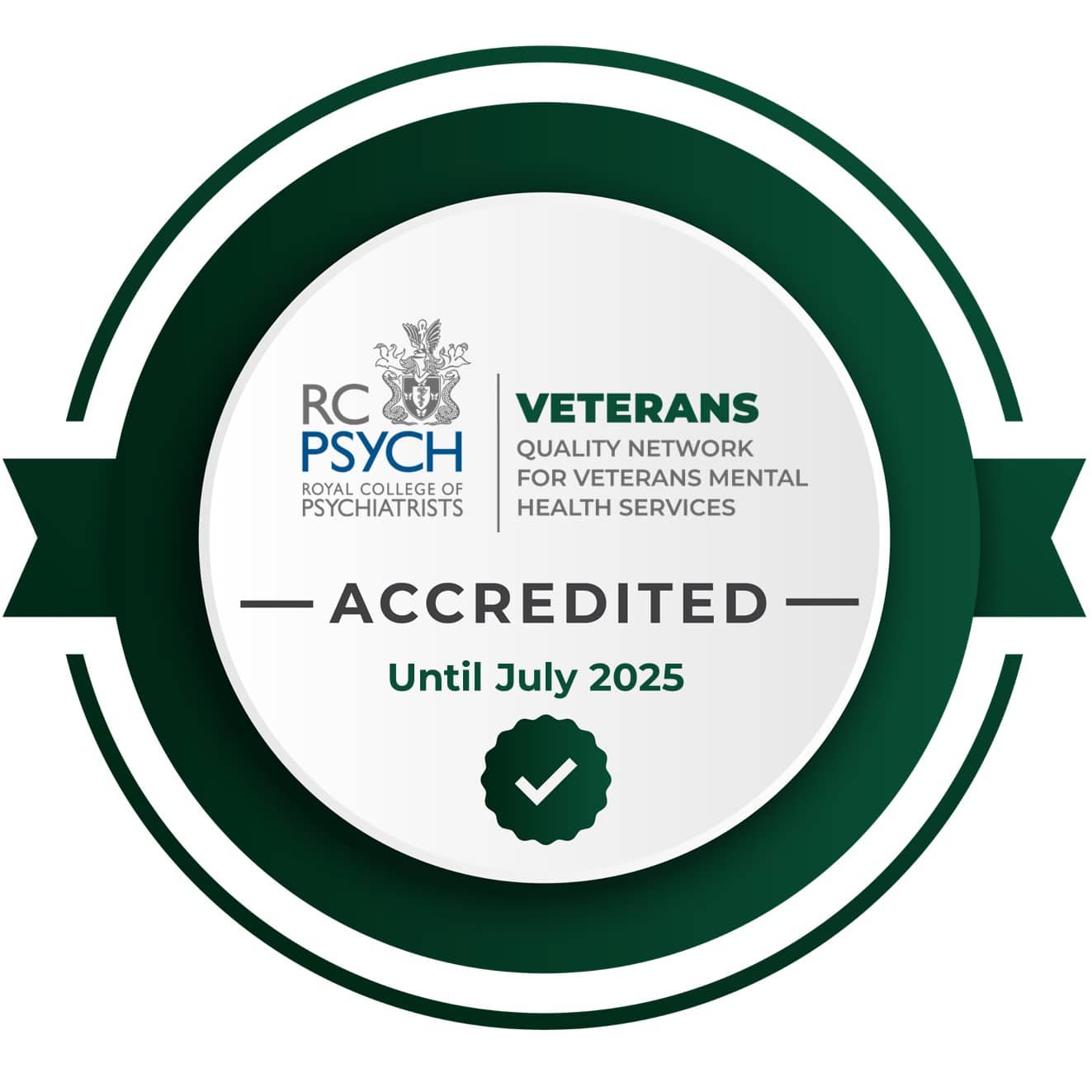PTSD Resolution awarded accreditation by Royal College of Psychiatrists

PTSD Resolution, the mental health charity which provides human givens therapy free to UK armed forces veterans, reservists and families, has been awarded accreditation by the Royal College of Psychiatrists to the Quality Network for Veterans Mental Health Services (QNVMHS).
The QNVMHS was established in 2020 to improve the quality of delivery of mental health services and treatment for Armed Forces veterans in the UK. The network evaluates and brings together mental health charities and teams to set quality standards, share best practice, foster an open culture and help service organisations plan future changes.
“PTSD Resolution is delighted by the recognition from the Royal College’s quality network and the opportunity to collaborate with others in the veterans’ mental health community. This award recognises the success of our work and the efficacy of the specialised therapy that we deliver through our network of 200 therapists registered with the Human Givens Institute,” says Colonel Tony Gauvain (retired), Chair and CEO of PTSD Resolution.
PTSD Resolution was founded in 2009 and has treated over 3,500 referrals to date. Therapy is delivered in an average of six sessions, with 78 per cent of cases experiencing an improvement in reported symptoms to where the client and therapist agree that no more therapy is necessary.
The charity is one of the few organisations that offers therapy to veterans suffering from addiction issues or who are in prison, as well as to family members, including partners and children, whose mental health has suffered as a result of living with a traumatised veteran.
Treatment is efficient and cost-effective, costing the charity £750 for a completed programme and delivered free of charge. Clients meet therapists for their first appointment typically within days of contact. PTSD Resolution runs a uniquely ‘lean’ service, with no salaried staff, assets or liabilities – funds are used to deliver therapy and for essential research and public information.
If you’d like to know more about PTSDR’s work, you can read their 10-year Impact Report, here >


